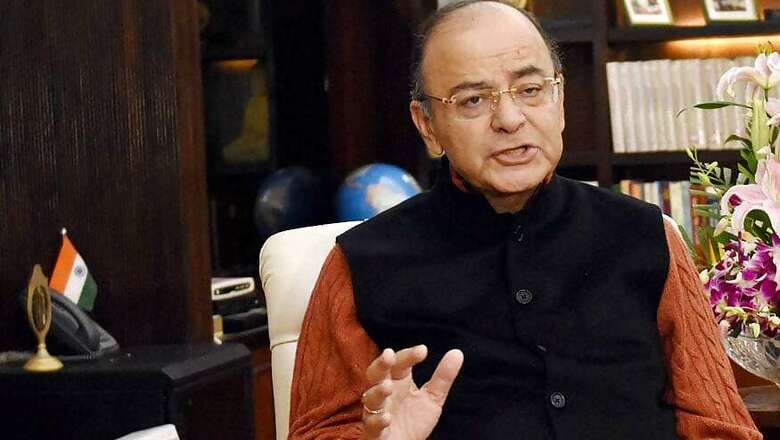
views
New Delhi: Budget 2017 is a few days away and investors are hoping for stability and predictability when Finance Minister Arun Jaitley unveils his tax proposals. Sadly, India’s tax regime in the past few years has acquired a reputation for just the opposite.
It started with the retrospective taxation legislation introduced in Budget 2012, in response to the Indian government losing a Rs 12,000 crore tax battle to Vodafone Plc in the Supreme Court. That amendment has not been taken off the statute books by the Modi government.
Adding to the confusion, in December 2016 the Central Board for Excise and Customs issued a notification to tax foreign funds investing in India with a rate as high as 30%-40%, levied on funds cashing out of derivatives contracts with half or more of the assets based in India. That spooked foreign investors.
Finally, rumours on the street are that the government may tinker with the capital gains tax, which is bad for private equity and venture capital funds looking to invest long term in India.
“India has positioned itself as an uncertain tax regime and that is detrimental to capital inflows,” Munish Dayal, head of the banking, financial services and insurance practice at Baring Private Equity Partners India, told News18. “Most countries trying to attract capital offer stable, predictable and simple tax regimes and that is what India should be doing. If you desire long term capital you cannot keep changing the rules of the game,” he added. Baring India manages around a billion dollars in Indian equities.
Getting the tax regime right is important if the government wants to attract capital inflows to fund “Make in India” and other programmes. The right kind of regime would enable the government to raise resources as well as offer stability and predictability to investors.
Uncertainty around the tax regime comes on the back of the government’s need for fiscal wiggle room, especially after Demonetization. All available data points suggest that private consumption and investments have suffered since November and tax collections may drop in the short run.
In such a scenario it becomes imperative for the government to increase its spending and raise taxes, while keeping in mind the ever important fiscal deficit number.
Taxing capital gains could be an option to raise revenue, but that is fraught with the risk of scaring away long term capital from India. Capital gains is the profit an investor makes by selling a capital security for higher than its purchase price, for instance buying a share at Rs. 10 and selling it at Rs. 20.
If an asset is held for more than 36 months it is defined as “long term”. There is no tax on long term capital gains in India while short term capital gains are taxed at 15%. Investors are hoping that the government does not tinker with this.
“Status-quo on the capital gains tax regime would be welcome,” Munish said.



















Comments
0 comment